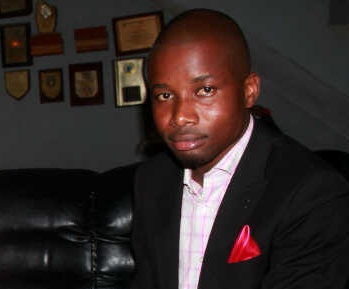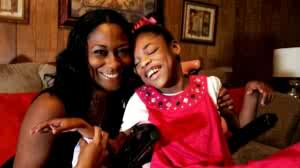Ambassador from Nigeria, Freeman Osonuga on the incidence of cerebral palsy in Nigeria and his initiative, the Heal the World Foundation.
Follow Freeman on Twitter: @freeman_osonuga
[[[image-0 native]]]
In my penultimate year studying as a medical student at the Olabisi Onabanjo University in Nigeria, I found myself at neonatal intensive care unit of the paediatric ward of the teaching hospital.
One morning, I received a phone call from my mother. She seemed anxious and worried. She explained that our neighbours’ newborn baby was unable to cry and that they were one their way to the hospital.
I ran to the children’s emergency room and met my anxious-looking neighbours who were hoping for a quick solution to their child’s health problem. Unfortunately there was nothing quick about the solution. After examination the baby was admitted to the Neonatal Intensive Care Unit for a few weeks. The baby was alive and later discharged, but not without permanent impairment to his health. He was diagnosed with cerebral palsy secondary to birth asphyxia. This scar is for life.
When I finally got to speak with the parent, I discovered that the child was delivered at a traditional birth centre not a proper health institution. It was my duty to advise against such practice as there are much fewer risks giving birth in a controlled (clean, safe and predictable) environment with professional medical personnel instead of a traditional birth centre where equipment is not properly maintained and the staff are not well-trained.
The parent however opined, and truly believed that that had nothing to do with the problem. Instead it must have been caused by a spiritual attack following certain quarrels just before the innocent child was born. With such (false) belief, I was inclined to think that their next port of call would be to visit a spiritualist, to offer prayers and sacrifices to try a cure the child.
Cerebral palsy is a disorder of posture and movement, caused by permanent and non-progressive damage to the developing brain. Cerebral palsy is a common neurological disorder of childhood in this part of the world with significant medico-social implications. The prevalence of cerebral palsy among patients seen at the paediatric neurology clinic of the Olabisi Onabanjo University Teaching Hospital from 2000 to 2006 was an incredible 50.3%. The permanent brain lesion that results in cerebral palsy can affect other brain functions often resulting in speech, auditory, visual and mental defects that last for life.
Like this boy, some children with cerebral palsy are not able to achieve their key developmental milestones, compared with other children of their age, and as a result they are seen as an ever-present burden to their parents, immediate family and the society at large in Nigeria.
The boy aforementioned stays with his grandparents, apparently away from embarrassing looks; when most likely it is actually from embarrassing the family. Most of the people with disabilities are stigmatised, neglected and abandoned.
The future of children with cerebral palsy just like any disability in Nigeria remains uncertain because there is no nationally known platform or special institution dedicated to their special needs. Unfortunately, in Nigeria today, most people with disabilities live in extreme poverty, lacking the inspiration, encouragement and the economic empowerment to live independent and fulfilling lives. And so, they often resort to begging on the street to make a daily living, whist hiding their shame all in a bid to survive.
I am looking forward to a time when poverty and disabilities are no longer connected, even in the Third World. Looking forward to when privileged individuals, like you and I, realise that it is our responsibility to come to their rescue.
[[[image-1 native right]]]
Heal The World Foundation Nigeria was born out of the passion to see all forms of poverty eradicated in Africa. Our organisation aims to help salvage the situation and help orphans, people with disabilities and those less privileged to secure a better livelihood.
I pioneered this initiative in November 2010, and in three years we have engaged over 200 volunteers and have positively impacted in the lives of around 400 orphans and children with disabilities. We have had six charity outreaches, visiting three schools of children with special needs and four orphanages in the process donating food, clothes and various other materials we hope will improve their welfare, support their education and provide them with better healthcare.
There is still a lot more to be done. Imagine what we could accomplish. Let’s help the helpless - together!

